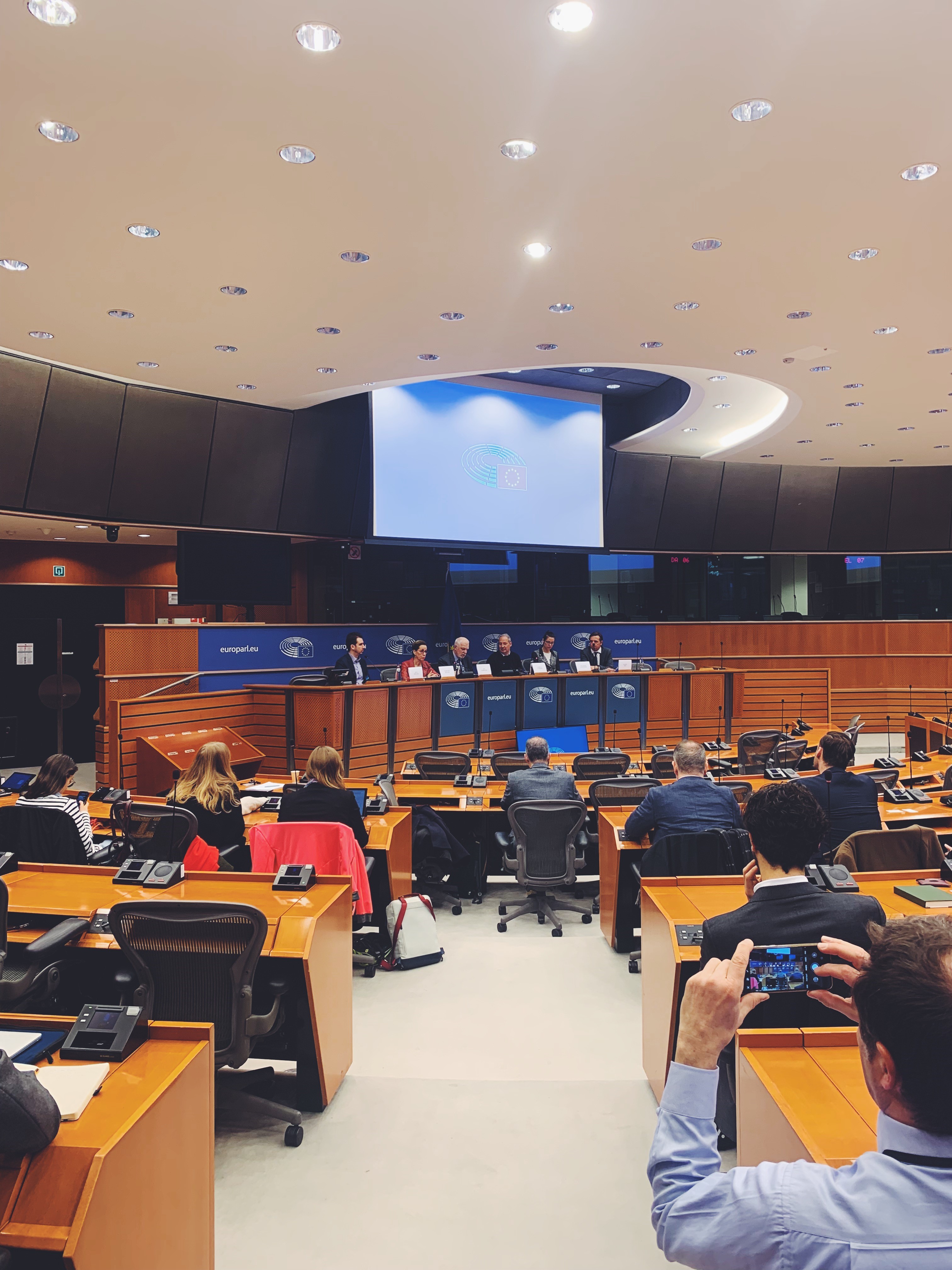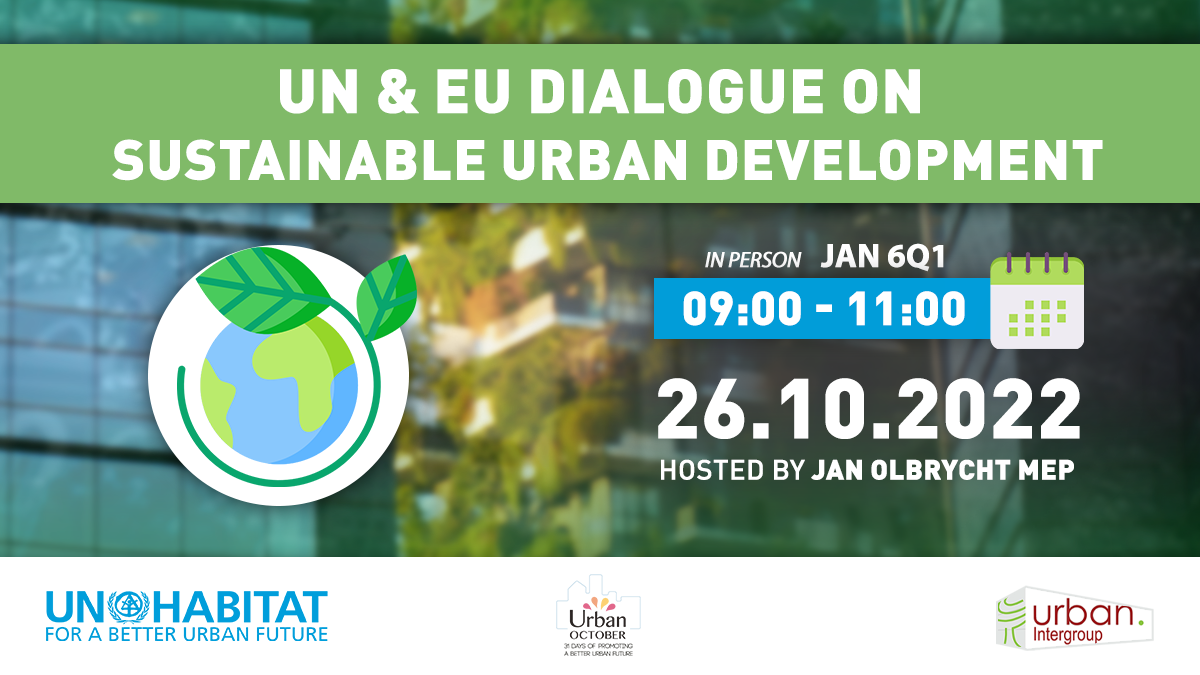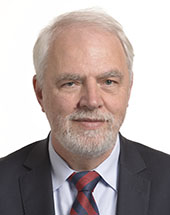Role of micro-mobility in the New Urban Mobility Framework (NUMF)

On 10 January 2023, the European Parliament’s Urban Intergroup and Micro-Mobility for Europe hosted a debate on the role of micro-mobility in the New Urban Mobility Framework (NUMF). Speakers included president MEP Jan Olbrycht (EPP, PL) and Vice-Presidents MEP Fabienne Keller (RE, FR) and MEP Andreas Schieder (S&D, AT) of the Urban Intergroup, Daniel Mes, Member of the Cabinet EVP Timmermans, Jens Müller, Policy and Research Lead, Clean Cities Campaign and Welmoed Neijmeijer from Micro-Mobility for Europe.
Panelists discussed the opportunities created by micro-mobility, as well as the challenges that the sector is confronted with. The need for more and better infrastructure for micro-mobility users, better integration with public transport, better education for road safety, the existing patchwork of applicable traffic rules, and the lack of a harmonised technical standard were raised as obstacles.
While speakers acknowledged the important role that micro-mobility already plays in diversifying the urban mobility landscape by reducing congestion and emissions, they called for action on:
- Improving infrastructure: more space and safe infrastructure encourages the safe use of micro-mobility and cycling
- Working towards harmonised technical standards: to ensure an innovation-friendly framework, EU technical requirements for personal light electric vehicles is needed for e-scooters and e-bikes
- Encourage multimodality: micro-mobility strengthens public transport via first and last-mile trips and by making the combination more attractive, car dependency can be reduced
Speaker’s statements
MEP Andreas Schieder (S&D, AT) stated that New Urban Mobility Framework comes right on time. There is a pressing need of changes in the transport in the cities, especially after the outbreak of COVID-19. He also highlighted the potential for effective use of micro-mobility, in relation to the lack of personnel (drivers) in public transport. He stated, “we can see an enormous amount of increase in the usage of e-scooters in the last year which is coming together with additional questions of infrastructure, safety and rules for parking”. MEP Schieder summarised the meeting saying that we are currently in the moment of transition and we need to know which kind of tools we can use and how we can learn from other means of transport (usage of space, safety of users, co-existence with other means of transport). At the end, he called for organising another micro-mobility meeting in the future.
MEP Jan Olbrycht (EPP, PL) identified that there is a lack of definition when it comes to micro-mobility, which should be addressed, as we need to have one understanding of what we are fighting about and only when the definition is set then EU can develop the specific regulations. Furthermore, he highlighted that “we cannot solve problems of transport without urban policy”. However, unfortunately, currently there is no clear urban policy in the European Parliament.
MEP Fabienne Keller (RE, FR) acknowledged that “sharing concepts enable citizens to try new services. We have to be careful with the rules imposed to not discourage their use” and noted that considering the weight of cars, “walking, cycling, e-scooter and e-bikes are a much preferred option”. She mentioned that there is an issue of security in Strasbourg, where the fines on micro-mobility misuses and bad practices are so high that the authorities decide not to enforce them. We need to have better rules of regulations in place. MEP Keller stated that she sees the competitions between shared and not-shared means of transport but they should complement each other. There is much need to invest in hubs and parkings for micro-mobility users and share good practises.
MEP Marcos Ros Sempere (S&D, ES) – rapporteur for opinion the New EU Urban Mobility Framework in the REGI committee admitted that there are 6 main topics in his opinion where he calls for European funding to improve multimodal, sustainable mobility focusing on public transportation and shared mobility. Moreover, he asked for only funding for mobility projects that improve the urban mobility indicators.
Daniel Mes (Cabinet EVP Timmermans) stated that “banning micro-mobility in cities is not a desirable outcome from the point of view of a member of cabinet of EVP Timmermans”. He also highlighted the contribution of young people in using micro-mobility as a sustainable form of transport. He said that “EU is also about building alliances” and that “we should respect the local part”. He also indicated that the European Commission is working on this issue.
Jens Müller, Clean Cities Campaign, referring to car dependency stated that “We urgently need to use all available options to reduce the use of polluting cars in our cities. There are plenty of workable options available to mayors to make everyone’s life better and tackle the climate crisis by letting citizens jump on shared bikes or e-scooters, while putting in place measures that guarantee road safety and a fair sharing of scarce public space”.
Welmoed Neijmeijer, Micro-Mobility for Europe, emphasised that “to maximise the societal benefits of micro-mobility solutions, infrastructure is needed and authorities must move away from car-centric spatial planning”. She also mentioned, “Brussels made good work for e-scooters and bikes”. Ms Neijmeijer called for the ending of fragmentation on the markets and getting harmonised technical rules at the European level. She agreed that we are in a transition period, that now it’s time for a new way of rearranging the cities and with that it is essential to ask right question ex. what and how people think about transportation.
Voices from the audience:
Annick Roetynck, LEVA-EU, agreed that there is no definition on micro-mobility, but there should be, because we are confronted with a range of terms, and as a result of that there is no real legislation in Europe. She also stated that we should make a clear distinction between technical regulations, and look at what already exists at the European level, and what can be improved.
Kevin Mayne, Cycling Industries Europe, mentioned that what is wanted is less impact of private cars use in the cities. There is an enormous danger in the conversations today that we micro focus on micro topics like micro-mobility. However, there is also an opportunity to say don’t dive deep into micro-mobility, dive deep into the change we really need to make and the change is the way we move. He underlines that there is a bigger picture which is more space for the sustainable modes, more space in parking, more hubs.
Pedro Homem de Gouveia, POLIS, stated that there is an issue with last mile definition and asked who is going to force the regulations. He mentioned that people are buying e-scooters en masse. For example, “in 2021, a total of 900,000 scooters were purchased in France for personal use”. In addition to technical regulations and terms of use, there is an issue of terms of operations: who controls access to the market and how companies should access that market. In the end he said that local and regional governments can’t reduce speed limits in their networks alone, they need help from other European governance bodies.
Ulrich Fikar, Association of German cities, said that lack of definition of micro-mobility raises uncertainty for German cities how to differentiate what comes on the road what comes on the pathways. He also mentioned that we do not need to get into competition between active modes and micro-mobility that is electric powered. Active modes should be still a priority for cities.
Sebestian Schlebusch, Dott, stated that there is still a big discussion on safety and because of that Micro-Mobility for Europe shared first-of-its-kind factsheet on incident data involving shared e-scooters in Europe.
UN and EU dialogue on sustainable urban development
 The latest event of the URBAN Intergroup on 26 October was dedicated to creating a platform for the EU Institutions to discuss how our cooperation with the UN in the field of sustainable urban development can be fostered: in the spirit of the Joint Communication to the European Parliament and the Council on strengthening the EU’s contribution to rules-based multilateralism of 2021; the conclusions of the recent EU-UN High Level retreat in July 2022, and the EU Statement and commitments at the High-Level Meeting at UN General Assembly in April 2022.
The latest event of the URBAN Intergroup on 26 October was dedicated to creating a platform for the EU Institutions to discuss how our cooperation with the UN in the field of sustainable urban development can be fostered: in the spirit of the Joint Communication to the European Parliament and the Council on strengthening the EU’s contribution to rules-based multilateralism of 2021; the conclusions of the recent EU-UN High Level retreat in July 2022, and the EU Statement and commitments at the High-Level Meeting at UN General Assembly in April 2022.
The occasion for the meeting was also to celebrate UN-Habitat’s 2022 award of the Scroll of Honour – the most prestigious UN award for achievements in promoting sustainable urban development – to the URBAN Intergroup “For being effective in enabling European legislation, policies, and financing for sustainable urban development in cities and human settlements which can provide inspiration for parliaments and parliamentary assemblies in other regions of the world”.
Andreas Schieder MEP, Vice-President of URBAN Intergroup stressed that the topic of the meeting is currently aligned with what is discussed globally ex. how to implement the green deal, how to address climate and social challenges. “Cities and urban areas are the fields where improvement could be done and has to be done”.
Click on the image to watch the recording
Policy Segment:
Camila Brückner, Representative of the UN to EU, set the stage on the UN and EU alignment of strategic and operational priorities. She introduced the Urban October, she underlined the importance of Joint Communication of the European Commission and EEAS to the European Parliament and the Council on strengthening the EU’s contribution to rules-based multilateralism and its drive towards alignment with the UN, referred to UN and EU High-Level Retreat, High-Level Meeting at UN General Assembly to assess progress of the implementation of the New Urban Agenda (NUA). She emphasised that NUA is a Multi-Level Governance and territorial dimension of Agenda 2030 and accelerator of attaining SDGs.




